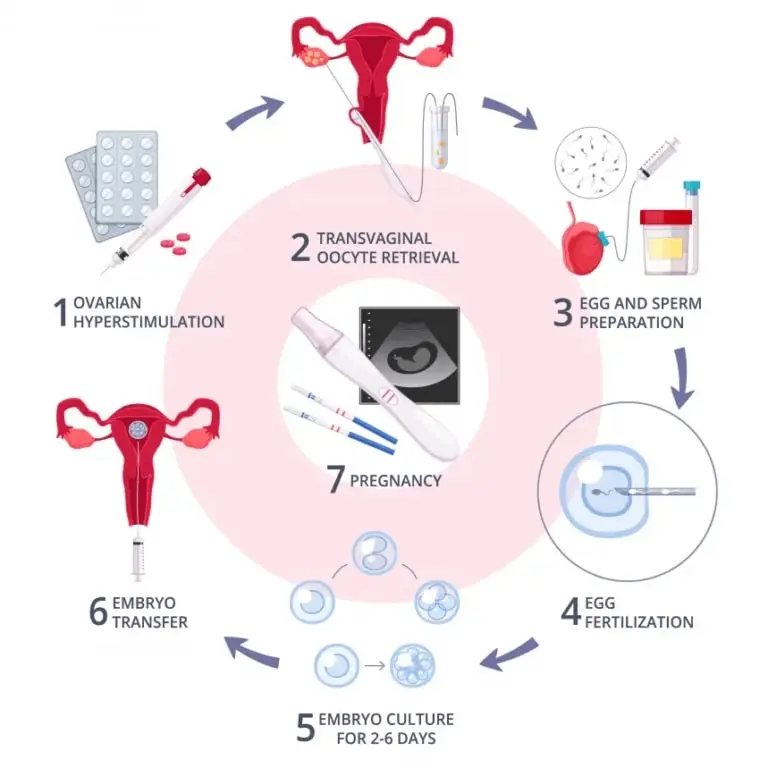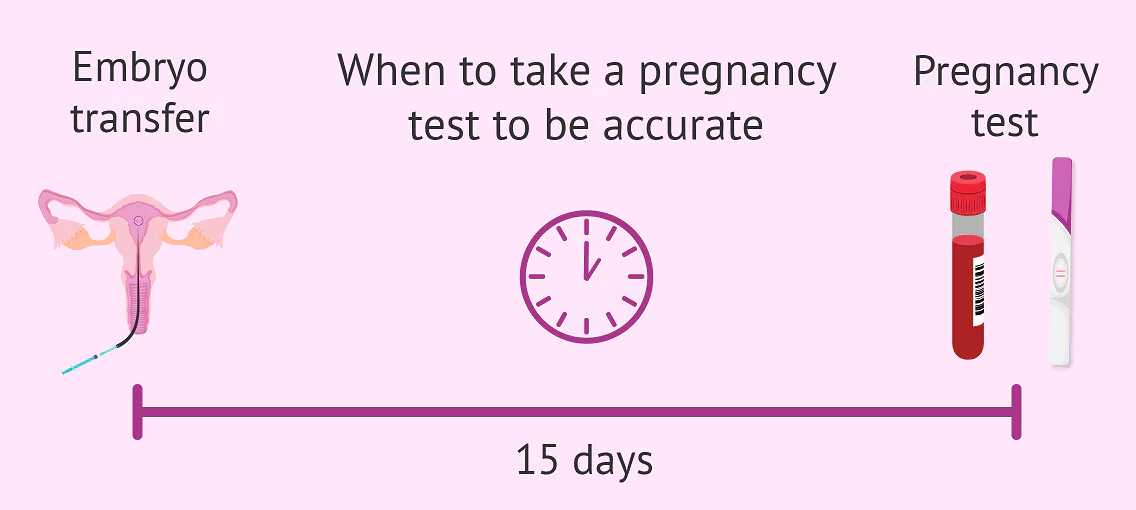
In vitro fertilization also known as IVF is basically a set of procedure which is used for helping with fertility problems and conception of a child. During the process of IVF, mature eggs are retrieved from the ovaries and then fertilized by the sperm in lab environment. Then the eggs that have fertilized are transferred to the uterus. One full cycle of IVF takes 3 weeks to complete successfully. In certain cases the three weeks steps are divided into parts and performed at regular intervals which can extend the overall time of the process.
IVF treatment is considered as one of the most effective forms of assisted reproductive technology. The procedure can be done in two ways- 1st is that you can use your own eggs and your partners sperms, or the 2nd procedure is that you can obtain eggs, sperm or embryos from a second person who can be a known or even an anonymous donor. The chances of having a baby with the help of IVF treatment depends on certain factors such as the cause of infertility and age.

Once the entire procedure has been completed, the person can resume with a normal life. However there are some side effects to the procedure such as –

Senior Consultant in Urology / Andrology and Robotic Surgery
CONSULTS ATIndraprastha Apollo Hospital, Delhi
EXPEREIENCE :Senior Consultant in Urology / Andrology and Robotic Surgery
CONSULTS ATIndraprastha Apollo Hospital, Delhi
Urologist, Andrologist, Urological Surgeon, Urethral Stricture, Hypospadias and Penile Curvature Cases.
CONSULTS ATSCI International Hospital, Delhi
EXPEREIENCE :Urologist, Andrologist, Urological Surgeon, Urethral Stricture, Hypospadias and Penile Curvature Cases.
CONSULTS ATSCI International Hospital, Delhi
Director of IVF and infertility department at Fortis Memorial Research Institute
CONSULTS ATFortis Memorial Research Institute, Gurugram
EXPEREIENCE :Director of IVF and infertility department at Fortis Memorial Research Institute
CONSULTS ATFortis Memorial Research Institute, Gurugram
Chairman, Academics and Research Division Urology
CONSULTS ATMedanta Hospital, Gurugram
EXPEREIENCE :Chairman, Academics and Research Division Urology
CONSULTS ATMedanta Hospital, Gurugram

![]() Sector 51, Gurugram, India
Sector 51, Gurugram, India
Artemis is the first JCI and NABH accredited multi-specialty hospital in Gurgaon.
![]() Rajendra Place, New Delhi, India
Rajendra Place, New Delhi, India
One of Asia's largest Bone Marrow Transplant center with 1500 healthcare providers
![]() Noida, India
Noida, India
World class facility with over 200 beds and 7 operational theaters. Most trusted Kidney & Liver Transplant.
![]() Bannerghatta Road, Bengaluru
Bannerghatta Road, Bengaluru
Fully accredited through Joint Commisson International (JCI), NABH and MTQUA
The InVitro Fertilization or IVF procedure that gives hope of baby to childless couples. It is an assisted popular reproductive procedure that works by artificially fertilizing your retrieved eggs and sperms outside of human body. When embryo formed outside in a laboratory, it directly transferred into the uterus.
IVF is a procedure in which series of steps are taken throughout the 6 to 8 weeks of time. For an average, the entire IVF procedure starting from doctor consultation to embryo transfer takes about 6 weeks to 8 weeks. Time also depends upon certain circumstances. In first week, consultation begins followed by pre-treatment preparations. From second week to fourth week patient will be on medication. In fifth week, doctor will monitor the condition. The triggering, egg retrieval, and fertilization occur in week 7. After this pregnancy is tested.